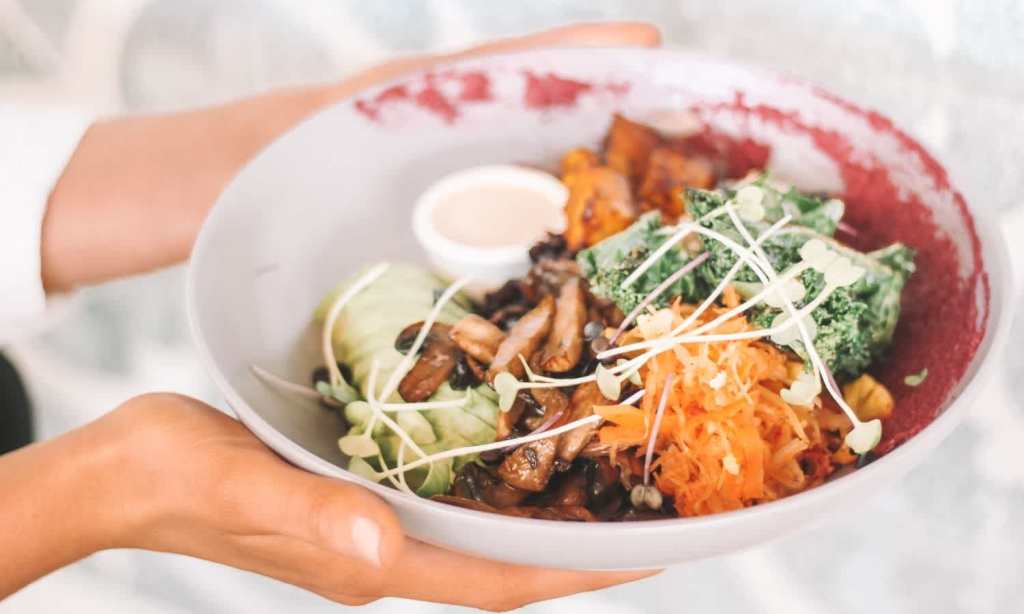The gut is a confusing place, to say the least. As we’ve learnt previously, the gut isn’t even a specific body part — it’s what we call the gastrointestinal tract. The specific organs include the mouth, esophagus, stomach, pancreas, liver, gallbladder, small intestine, colon and rectum, according to the NYU Langone Medical Centre.
It’s also known as the second brain, due to its constant communication with the brain — and the fact our gut can indeed influence our emotions.
So, yes. There’s lots going on around the gut — and probably in your gut too. There’s also lots of advice around boosting your gut health as well. But at the end of the day, it all comes back down to the microbiome and more specifically, the two things that can influence it — prebiotics and probiotics.
To get clarification on prebiotics and probiotics, the difference between them, and the role they play in the gut, we spoke to Tahli Watts, co-founder of Golden Grind.
What are prebiotics?
“[They’re] fibres that resist digestion in the small intestines,” Watts told The Latch. That’s a big deal, as they’re not broken down, unlike most other foods we consume. “Instead, they arrive into the large intestine (colon) intact; they make perfect substrates for fermentation,” Watt explained. “This results in an increase in short-chain fatty acid production.”
And those short-chain fatty acids? They become fuel/food for probiotics.
What are probiotics?
So now you’re probably wondering what probiotics are. Watts has you covered: “Probiotics are microorganisms containing ‘good’ bacteria that are proven to be beneficial to our bodies.”
Explained to us in the plainest language possible, probiotics are little working dudes that are “going to help immediately”. How? They “instantly contribute to your good bacteria numbers”, and can have an “immediate effect on the efficiency of [the] gut to work right” — on things like “our immune system, digestion and brain”.
And yes, the existence of good bacteria means there are less bad bacteria — the ones we associate with colds, inflammation or sickness. Probiotics help control and balance these.
What’s the difference between prebiotics and probiotics?
“Essentially, prebiotics are the food and fertiliser for probiotics,” says Watts. And it’s super important to consume both simultaneously, as “the more you feed (prebiotics) the good bacterias (probiotics) the better the bioavailability and health outcome”.
In the simplest terms possible: Probiotics are little working dudes, and prebiotics are the food for these little working dudes.
Why are prebiotics and probiotics so important to the gut, and the wider body?
The main benefit, according to Watts: “Strengthening the immune system.” There are more benefits, including the fact “they play a significant role in keeping your digestive system running smoothly”. This includes regularity (yep, we’re talking pooping here), bloating, wind nutrient absorption, IBS and more.
And yes, another benefit includes the brain-gut connection, which according to Watts is “the most recently confirmed and studied benefit of probiotics”.
How can we support prebiotics and probiotics?
Watts emphasises the importance of a well-balanced, healthy diet “with lots of fibres and fermented foods”.
For natural prebiotics, look at “green banana powder, flaxseed, oats, small, organic doses of inulin, like chicory root or Jerusalem artichoke”.
Great sources of natural probiotics in foods include “kimchi, yoghurt, sauerkraut, kombucha, miso.” Look for supplements that contain the actual bacterias, like Bacillus Coagulans, Lactobacillus and Bifidobacterium.
If you’re looking to address specific concerns — a damaged gut, compromised immune system — Watts recommends a wholesale supplement like Golden Grind’s GUT BLEND, or “something more personalised from our free consultations”.
Read more stories from The Latch and subscribe to our email newsletter.







